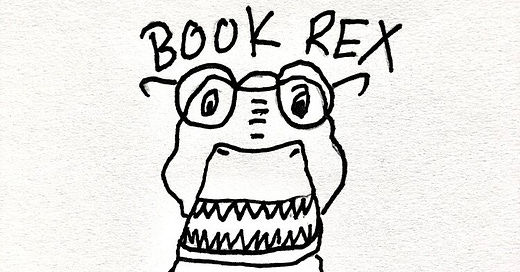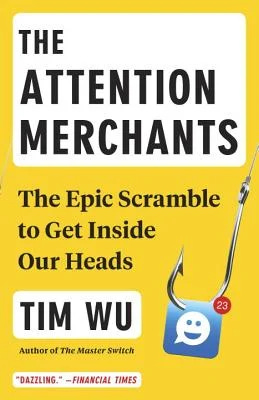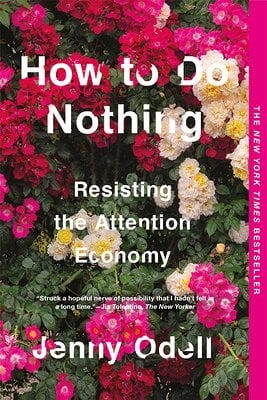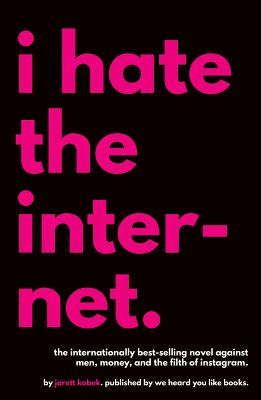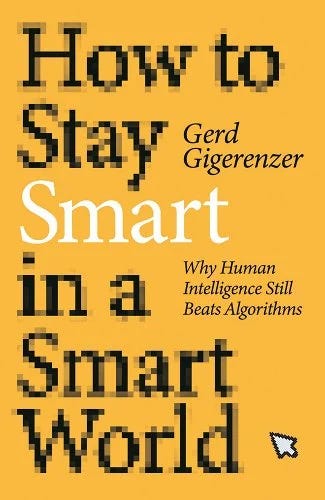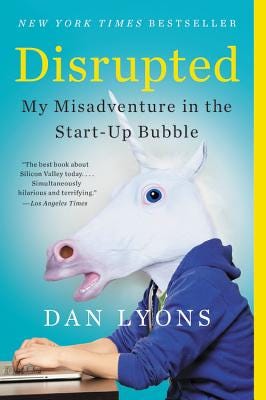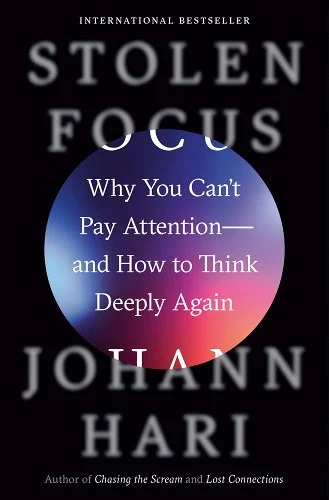Book Rex: How to defeat the Internet
The internet should've ushered in a new era of democracy. It didn't.
Hey guys! My newest weekly column is something I’ve been doing as part of the Jimble-Jamble for a while, and I decided that it deserves its own space. It’s simple: five book recommendations on a specific theme! I’d love to have guests posting these in the future, so if you want to suggest specific books on a theme, let me know! All links are affiliates with Bookshop.org, so if you buy something through that link, I get a small cut.
Today’s Book Rex is on how the internet is destroying our lives, and how by better understanding it, we can fight back! Your soundtrack today is, naturally:
The Attention Merchants by Tim Wu
The biggest lie about the internet is that it is part of some idealist “information economy,” which is centered around the free and open exchange of ideas. The internet is not about information — it is about attention.
The proof of this is in that the biggest corporations do not make money off of selling any specific product, but off of selling advertising. 98% of Facebook’s revenue, 90% of Twitter’s revenue, and 81% of Google’s revenue comes from selling ads. This amount of money can’t help but have its own gravitational field, warping the internet and the information around it.
Tim Wu’s The Attention Merchants covers the full history of the advertising profession, from its snake oil roots, to its usage as war propaganda in the early 20th century, to its overthrow of the early egalitarian internet. This is an incredibly interesting book. I could not put it down.
How to Do Nothing by Jenny Odell
Jenny Odell is the reason I became a bird person during the pandemic. Her 2019 book How to Do Nothing (which made Barack Obama’s “best of” list for that year) is a thoughtful look into how the attention economy warps our minds, and how we can resist it, and also use tech like smart phones to actually get into a better connection with the nature around us.
Some of the apps she suggests are the Merlin Bird ID and iNaturalist apps, which became staples with me and my daughter during the early pandemic — Odell points out that most young kids can recognize dozens of brands by the time they’re a few years old, but none of the local birdsong. The day my two-year-old was sitting outside with me, cocked her head, and said, “Papa, that’s a mourning dove,” before I even realized I was hearing it was maybe the best day of 2020 for me.
I Hate The Internet by Jarett Kobek
When Jarett Kobek’s I Hate the Internet was published, in early 2016, it could’ve been read as a rather cynical view on Silicon Valley and what the internet has become. 7 years later, it reads more as a prophecy than anything else. Kobek self-published the book, but it nonetheless became a runaway bestseller when he was savvy enough to obscure that fact from The New York Times by inventing a fake publishing company.
And it never could’ve been published otherwise — the book is as much of a rant as it is a novel, and at one point, Kobek’s stand-in stands on top of a mountain outside San Francisco and shouts abuse at the city below, a la John Galt in Ayn Rand’s hideous magnum opus, Atlas Shrugged.
It’s impossible to list all of the things that Kobek is furious about in this book, but it’s immensely entertaining and totally infuriating read. Kobek saw the capitalist con artistry that fueled the rise of social media long before most of us, and even if his anger about is breathtaking sometimes, he’s never actually wrong.
How to Stay Smart in a Smart World by Gerd Gigerenzer
Gerd Gigerenzer’s 2022 book is slightly inaccurately titled — Gigerenzer is interested in more than just how algorithms work and don’t work: this book is also an impassioned call for the importance of privacy, and of not handing over our data to any app that asks for it. But How to Stay Smart in a Smart World is also an incredibly informative guide to how algorithms and AI function, and how we misinterpret what they tell us.
One of the many things we fall prey to with AI, for example, is the Texas sharpshooter fallacy: this is named after the idea that a sharpshooter could exaggerate his competence by aiming his gun at a barn, clustering the bullets anywhere, and then drawing on the target afterwards. Data scientists working with AI often do this: they find things the AI seems to predict after the fact, and then say, “the AI predicted this!”
Given all the buzz around engines like ChatGPT, this is a worthy read. AI has a lot of things that humans don’t — the ability to process a lot of data very quickly, for example. But human brains are adapted to unpredictable worlds and to chaos. AI, by it’s nature, can’t deal with chaos. Gigerenzer breaks down how AI won’t replace human intelligence so much as supplement it, and how we need to be wary about putting too much of our faith into technologies we don’t yet understand.
Disrupted by Dan Lyons
Dan Lyons was a respected journalist and editor at the web and technology site ReadWrite when he created a parody blog called Fake Steve Jobs. The blog got incredibly popular, and this in turn led to Lyons being offered a job at tech start-up HubSpot.
Disrupted is Lyons’ account of his brief tenure at HubSpot which — it is no spoiler to say — didn’t end well. HubSpot was a typical Silicon Valley start-up, in that it was run by frat boy psychopaths who ran their company like a cult.
This book was recommended to me after I left a toxic media job which was run on a similar model, and it is an incredibly funny, savage take-down of the sheer con artistry that keeps the Bay Area afloat. If you have — for whatever reason — started to suspect that a guy like Elon Musk is not a visionary so much as an incredibly dumb person who is also a very good con artist, then read this book.
Things turned out okay for Lyons, by the way: he managed to leverage his experiences into a job writing for and producing the excellent HBO show Silicon Valley.
Honorable Mention (that I haven’t read yet): Stolen Focus
I haven’t had a chance to read this yet because there’s a 27-week wait on the audiobook at my library. That alone is enough to recommend, but I’ve also had a number of people I trust say Johann Hari’s Stolen Focus was their best book of 2022.
 Tiktok failed to load.
Tiktok failed to load.Enable 3rd party cookies or use another browser

